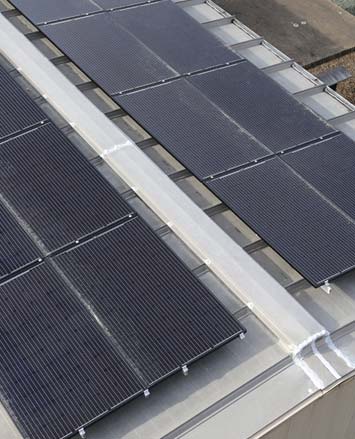Renewable Energy Tracker
Alderman Substation
The Alderman Substation solar array came online in September 2017 and operates with a capacity of 10 kW of AC electricity. The inverters feed local loads in the substation (powering the lighting, power outlets, fans, heaters, etc.), but can also export power directly to the UVA grid.
This project is the University's first and only system to be designed, purchased and installed completely in-house. The UVA Power & Light team performed the design and construction management and installation was completed by the team's high voltage electricians and the Facilities Management roofing team.
In preparation for this project, Associate Director of Power & Light Sathish Anabathula and Power & Light Electrical Engineering Associate William Evans achieved the North American Board of Certified Energy Practitioners (NABCEP) PV Installation Professional certification, which is the most recognized certification for solar PV, solar heating and wind power design installation and sales professionals and is required of all contractors installing solar arrays on Grounds. The knowledge the team gained in preparation for the NABCEP exam was crucial in designing the Alderman Substation PV system.

Current solar production
Total solar production since September 15, 2017
Production
Total production: kWh
Average production: kW
After 6 hours at peak capacity, this solar installation is estimated to generate 60 kWh and save 45 kg of greenhouse gas emissions. This is equivalent to the carbon dioxide emissions from:
- 109 miles driven by an average passenger vehicle
- 5 gallons of gasoline consumed
- 49 pounds of coal burned to generate energy
On a daily basis, the average US residential utility customer consumes approximately 30 kWh of electricity (emitting approximately 45 kg of greenhouse gas emissions), drives 37 miles, and uses approximately 4.5 gallons of gasoline and 41 lbs of coal.
1 kWh equals
Using a laptop (20-50 watts) all day
Environmental Savings from Total Solar Production to Date
metric tons of CO2 avoided
gallons of water saved
barrels of crude oil not used